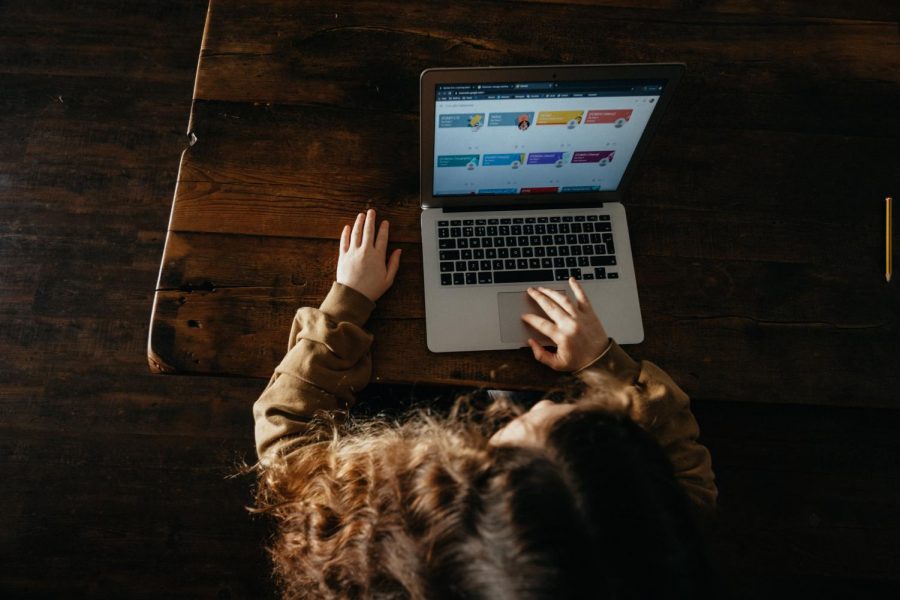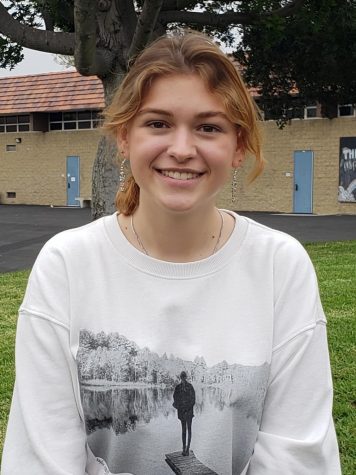AP Teachers Adapt to Hybrid Learning
April 13, 2021
As we draw to a close on the wild year of 2020, some may say that the year has truly felt like a series of blows to the face, each stronger than the last. One particular punch that has derailed most of our lives, is the COVID-19 pandemic, which took the form of a wrecking ball on our education system. Because of this, many teachers have had to adapt their course curriculums to our ever-changing model of schooling.
Advanced Placement (AP) classes especially have taken a significant hit, as teachers have to wrap up their coursework by May when the AP exams will be administered.
“I am definitely worried for my AP exams in May. I have heard [the exams] will be exactly like they have been in years previously to COVID which does worry me a bit, especially due to the lack of in-person instruction from teachers directly,” stated Junior Jean Meyer.
With a significant decrease in lecture time designated to teachers, many have had to cut out course material or rush through certain topics, which has impacted the students’ quality of learning. Junior Yade Cinar said, “I do feel that my learning has been rushed to some extent because most of my teachers have had to cut down on content in order to stay on track.”
UHS AP Biology teacher, David Knight explained, “Because we have lost days in the classroom I have had to eliminate or alter every unit I teach in Marine Science and AP Biology”.
As the COVID-19 pandemic has taken away the option of fully in-person learning and caused some students to be hesitant to undergo another semester of fully online learning, many families opted to sign up for Hybrid Learning. Back on March 13, 2020, when the IUSD school shutdown was seemingly only going to last for 2 weeks, no one could have foreseen what was to come. At the time, there were only 68 reported cases in the United States. As COVID-19 continued to spread at a rapid rate, schools chose to remain closed for the remainder of the academic year. Now, as of December 29th, with over 17.8 million cases and 317,800 deaths, the question stands whether or not any form of in-person schooling should continue.
Recently a number of IUSD students and parents have begun questioning whether this model of learning is truly the safest and smartest option for our community. On December 7, 2020, Junior Sohrob Habibi, created a petition to switch back to fully online classes, in light of the skyrocketing number of cases.
Habibi said, “I had started feeling uncomfortable and in danger when going to in-person learning once I truly noticed the negative difference in hybrid education quality, and how unfollowed the safety guidelines were among students and some staff. This, compounded with rising COVID-19 cases, instigated the petition.”
As of December 21, 2020, the petition has amassed 1320 signatures from various members of the IUSD community.
“It is unfortunate that isolation and online learning have increased the rates of depression among students (…), the benefits of a safer and more productive learning environment far outweigh the benefits of in-person learning, and are a key to us keeping our community safe and well educated,” Habibi added.
On the other hand, many teachers and students at UHS feel that a switch back to a fully online class model would have a disastrous impact on the student body. A switch in the middle of the school year could significantly mess up students’ and teachers’ schedules for the next semester, especially since going back to full isolation could impose negative impacts on their mental health.
“I feel that it is imperative that we continue to teach in person and not go back to 100% virtual teaching,” Knight said. “People need to feel connected to one another and to feel that someone cares for them. The student and teacher relationship is most important—more than the content I teach in my class.”





